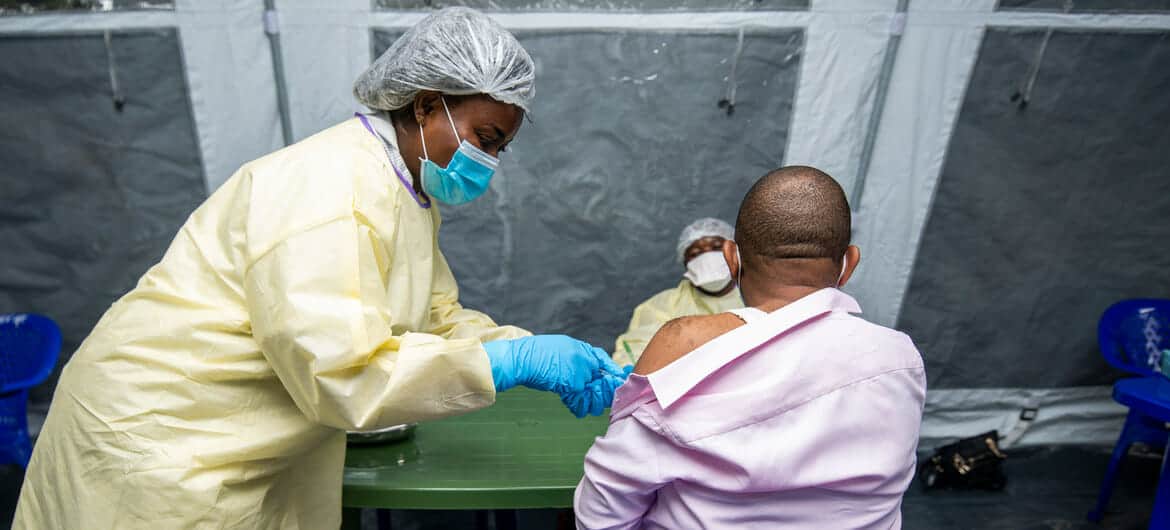The heads of the International Monetary Fund, World Bank Group, World Health Organization, and World Trade Organization have said in a joint statement that vaccine inequity was putting the world’s health at stake.
Together, they form the Multilateral Leaders Taskforce on Covid-19, and recently met the leaders of the African Vaccine Acquisition Trust, Africa CDC, Gavi, and Unicef to tackle obstacles to rapidly scale up vaccines in low- and lower-middle-income countries.
The leaders then released a joint statement in which they condemned what they called the “crisis of vaccine inequity.”
They said in the statement: “The global rollout of Covid-19 vaccines is progressing at two alarmingly different speeds.”
The leaders explained: “Less than 2 percent of adults are fully vaccinated in most low-income countries compared to almost 50 percent in high‑income countries.”
They went on to add: “These countries, the majority of which are in Africa, simply cannot access sufficient vaccine to meet even the global goals of 10 percent coverage in all countries by September and 40 percent by end 2021, let alone the African Union’s goal of 70 percent in 2022.”
The leaders called on countries that have contracted high volumes of vaccines to swap near-term delivery schedules with COVAX and AVAT.
They also urged vaccine manufacturers to immediately prioritize and fulfill their contracts to COVAX and AVAT.
The leaders then petitioned G7 and all dose-sharing countries to “fulfill their pledges urgently, with enhanced pipeline visibility, product shelf life and support for ancillary supplies.”
They said: “We call on all countries to eliminate export restrictions and any other trade barriers on Covid-19 vaccines and the inputs involved in their production.”
The leaders concluded in their statement: “The time for action is now. The course of the pandemic—and the health of the world—are at stake.”







